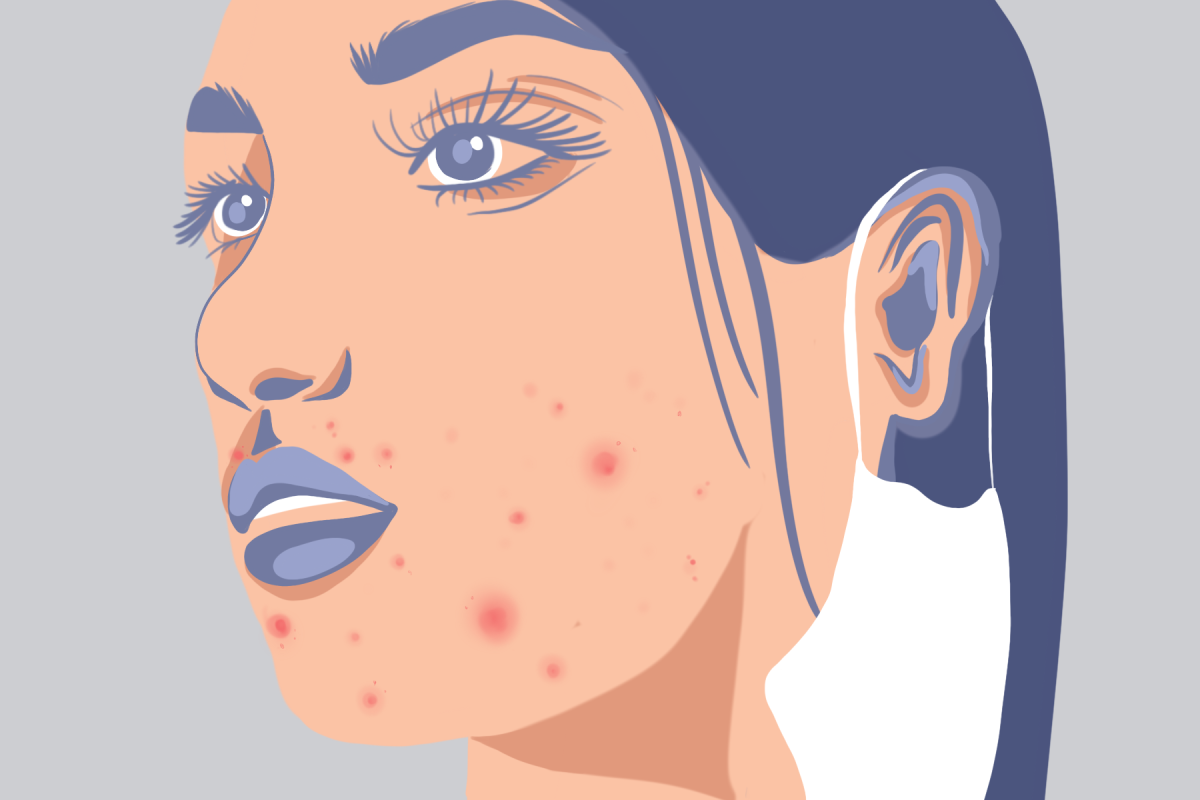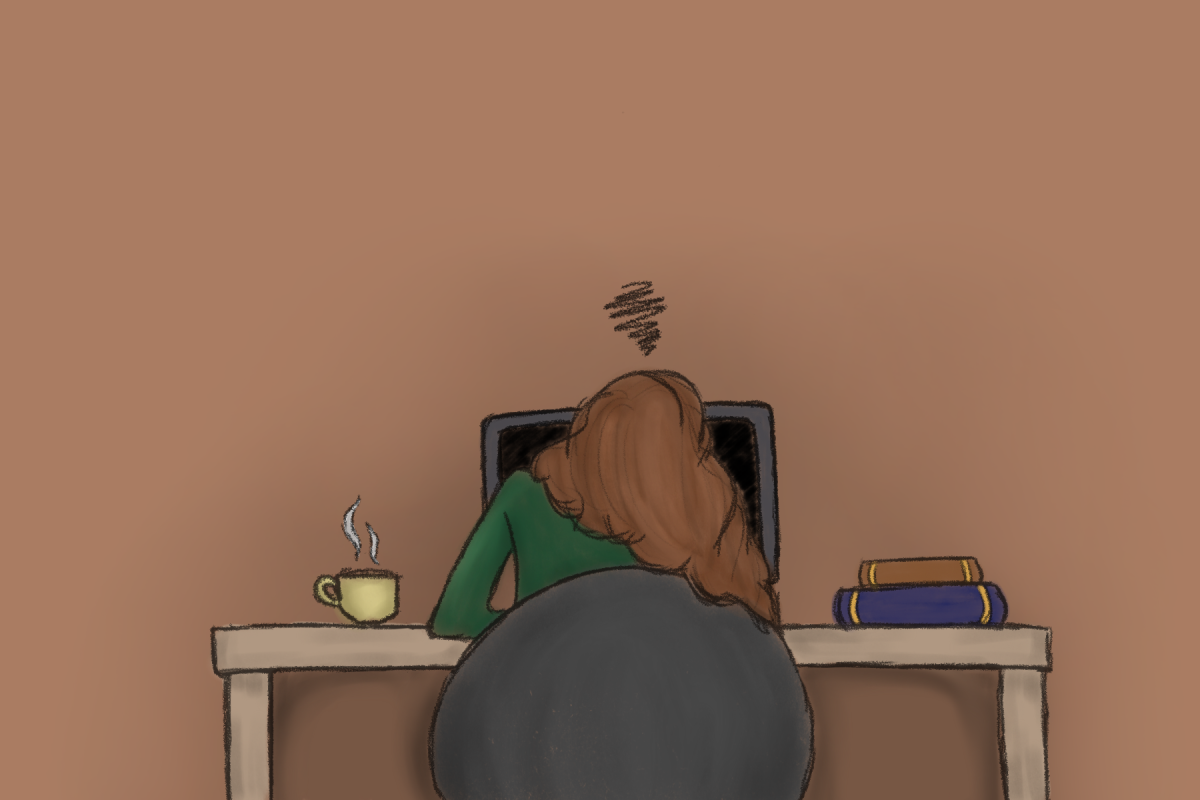The coronavirus pandemic has altered our daily routines tremendously. Perhaps one of the biggest daily changes are mask mandates. Medical masks, which prior to the pandemic were scarcely worn, are required in grocery stores, schools, offices and restaurants.
Without a doubt, mask wearing is vital to the health and safety of our community, but the daily and extended use of medical masks are taking a toll on our skin. Medical masks are home to different dirt, sweat, oils and bacteria, making them a key player in facial acne.
A recent term in the beauty and skin care work has emerged amidst the pandemic. “Maskne,” or acne caused by mask wearing, is referred to by dermatologists as acne mechanica. Acne mechanica is triggered by friction against the skin as well as a lack of air exposure. When you wear a medical mask for an extended period of time, your pores become clogged and the protective oils that sit on your skin deteriorate. These oils are essential to skin health and without them your skin is vulnerable to bacteria and virus. Other factors that contribute to maskne are makeup, stress and humidity.
Skin friction from a mask can also flare up chronic skin conditions like rosacea, eczema and psoriasis. Individuals with sensitivity are also most likely to develop acne mechanica from medical masks.
“Maskne” Prevention
While there is not a clear cut solution to stopping maskne, there are dermatologist recommendations on how to prevent its spread.
- Clean your Masks Frequently
The cleaner your mask is, the less likely it is to hold harmful bacterias or dirt that could irritate your skin. It is recommended to wash your mask if it has been worn for more than one hour or if you have sweat in it. This also includes disposing of reusable masks frequently. If you have sensitive skin, it is also recommended that you use a hypoallergenic and fragrance free soap to clean your mask.
- Use Petroleum-based products to prevent irritation
Masks can especially irritate dry and sensitive skin, but petroleum will help keep your natural protective oils intact. Petroleum products can also be super useful on the lips, as masks can also dry out our lip skin. Lastly, note that petroleum should only be used under cloth masks and not disposable masks, because it can affect the durability of the medical masks.
- Don’t wear Makeup
Makeup increases your chances of having clogged pores. Switching to lighter and more natural makeup products could help with this issue. Also make sure you are completely removing your makeup after wearing a mask with a gentle cleanser like micellar water.
- Avoid harsh and drying products
It can be tempting to spot treat large pimples that sit under a mask, but harsh acids and creams can cause further irritation and breakouts due to the humidity inside the mask. It is most helpful to have cean, lightly moisturized skin underneath your mask, saving the acne treatments for night time.
- Switch mask materials
It’s important to note that these recommendations are only for individuals who are wearing masks for general protection and not essential medical workers. Dermatologists found that breathable cotton, such as old-shirt material, might be the best solution at letting the skin breath and reducing the amount of flare ups. Not that double layering the fabric is important to reducing the most droplet spread, rather than a single layer. Professionals also note that silk lined fabrics do a wonderful job at reducing friction and protecting the skin’s natural oils.
Know that these recommendations are all suggestions to stop the spread of “maskne,” but your own personal dermatologist can provide you with the best resources and information on how to keep you skin healthy and clear while wearing a mask.





































